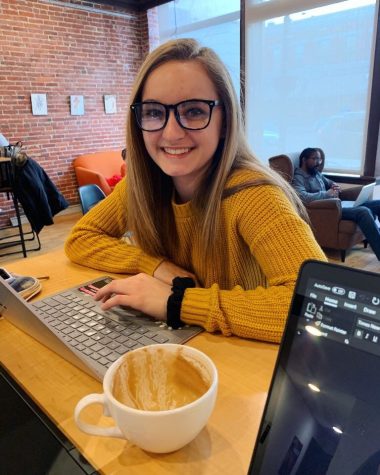Dating safety in an online world
September 16, 2020
Just like everything else in our socially distant world, dating has taken to online platforms as a means for meeting and interacting with new people.
Even though in person interactions may be more limited, it is still important to take precautions to have a healthy online relationship.
“Especially in the face of COVID, emphasis on social distancing and our increasing reliance on on-line communication and social media, we need to be informed in order to stay safe,” Mercyhurst Empowerment and Prevention Program (MEPP) project manager Michael Madonia, said.
The rules of online relationships are very similar to those in person: healthy relationships bring out the best in you and make you feel good about yourself. “Healthy relationships manifest themselves as healthy communication,” said Madonia. “Another important part of a healthy relationship is loving yourself.”
Crime Victim Center director of Prevention Education, Amy Blackman notes the importance of setting boundaries online in the same way they are set in person.
“If a person isn’t respecting your boundaries, they aren’t a healthy friend/partner,” Blackman said. “Also, the fact that you can talk about times when you feel uncomfortable by something that’s sent virtually is important. Many students don’t realize just how the receiving of an unsolicited pic can affect someone.”
Consent is also just as important to practice when using social media or another digital platform.
Involved parties must communicate about what they want and their comfort levels, free from external pressure.
“If it feels forced, it’s not consensual,” Madonia said. “If you have to be convinced to do something, it’s not consensual. If you feel like you are “giving in” to get the other person to stop asking, it’s not consensual.”
The rules of consent can be most easily remembered with the pneumonic FRIES, it must be freely given, reversible, informed, enthusiastic and specific.
When online interactions and sexting become unwanted or nonconsensual they can be categorized as online harassment.
The term includes a variety of unwarranted behaviors including nonconsensual sharing of intimate pictures and videos, coercion, threats, sexualized bullying and unwanted sexualization.
If one of the involved parties is under 18, harsher penalties exist under Pennsylvania’s sexting laws and other charges associated with child pornography.
Another issue that exists is sending photographs of another without their consent or knowledge.
“Often overlooked is when a person’s image(s) is shared without their permission,” said Blackman. “Beyond someone sending unsolicited images, finding out that your own picture that was sent to a trusted someone has now made its way to other people or public online spaces [is online harassment.]”
These behaviors can be just as traumatizing as in person sexual assault and need to be taken seriously for the protection of those victimized.
If experiencing online harassment, one of the most important things to do is to avoid escalation. Do not delete the photo, nor respond to the sender.
It is also important not to give out any personal information such as an address or geotag. This is important in preventing stalking behaviors.
The next step should be to tell someone, whether this be a resident assistant, hall director, professor, counselor, Title IX office or Police and Safety.
Do not deal with it alone. Police and Safety can be contacted by visiting their office on the lower level of McAuley Hall or by calling 814-824-3911. “
If we are going to change the culture of gender-based violence that exists we must pay attention to these issues,” Madonia said.
There are a variety of resources available for those who need them, including specialized advocates from the Crime Victim Center and SafeNet who are offering online services.
In addition to Blackman, Karen Swager from SafeNet will also be holding office hours for students.
Both women can be reached via Microsoft Teams or through a call. Swager can also be reached at (814) 454-8161 and Blackman can be contacted at (814) 455- 9414.
To learn more about how to protect yourselves and others, contact MEPP project manager Michael Madonia at (814) 824- 2354 or by emailing mmadonia@mercyhurst.edu.

